
Ermera: The Heart of Timor-Leste's Highlands
Nestled in the lush highlands of Timor-Leste, Ermera is a hidden gem waiting to be discovered by adventurous travelers. Known for its stunning landscapes, Ermera offers a serene escape from the hustle and bustle of urban life. The region is rich in natural beauty, with rolling hills, verdant valleys, and pristine waterfalls that provide endless opportunities for outdoor activities and exploration. The culture of Ermera is as captivating as its scenery. The local communities are warm and welcoming, and visitors can immerse themselves in the unique traditions and customs of the Timorese people. Traditional markets offer a glimpse into daily life, where you can sample local delicacies and purchase handmade crafts. The coffee plantations in the area are also a must-visit, as Ermera is renowned for producing some of the finest coffee in the world. For history enthusiasts, Ermera offers a wealth of historical sites and monuments that tell the story of Timor-Leste's past. From remnants of colonial architecture to poignant memorials, the city provides a deep and enriching historical experience. Whether you are trekking through its scenic trails, engaging with its vibrant culture, or delving into its historical depths, Ermera promises a memorable and enriching journey.
Local tips in Ermera
- Visit coffee plantations to learn about the coffee-making process and sample some of the best brews.
- Carry cash, as ATMs and card payment options may be limited in rural areas.
- Hire a local guide for trekking to ensure you get the most out of your exploration and stay safe.
- Respect local customs and traditions, especially in rural communities.
- Bring insect repellent and sun protection for outdoor activities.
Ermera: The Heart of Timor-Leste's Highlands
Nestled in the lush highlands of Timor-Leste, Ermera is a hidden gem waiting to be discovered by adventurous travelers. Known for its stunning landscapes, Ermera offers a serene escape from the hustle and bustle of urban life. The region is rich in natural beauty, with rolling hills, verdant valleys, and pristine waterfalls that provide endless opportunities for outdoor activities and exploration. The culture of Ermera is as captivating as its scenery. The local communities are warm and welcoming, and visitors can immerse themselves in the unique traditions and customs of the Timorese people. Traditional markets offer a glimpse into daily life, where you can sample local delicacies and purchase handmade crafts. The coffee plantations in the area are also a must-visit, as Ermera is renowned for producing some of the finest coffee in the world. For history enthusiasts, Ermera offers a wealth of historical sites and monuments that tell the story of Timor-Leste's past. From remnants of colonial architecture to poignant memorials, the city provides a deep and enriching historical experience. Whether you are trekking through its scenic trails, engaging with its vibrant culture, or delving into its historical depths, Ermera promises a memorable and enriching journey.
When is the best time to go to Ermera?
Iconic landmarks you can’t miss
Cristo Rei of Dili
Discover the iconic Cristo Rei of Dili, a majestic sculpture symbolizing peace with stunning views of the East Timorese coastline.
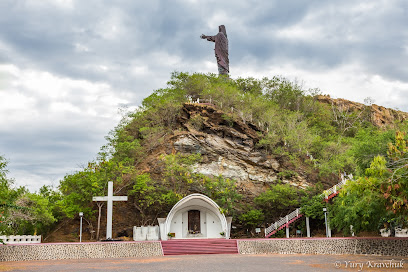
Timorese Resistance Archive & Museum
Explore Timor-Leste's heroic history at the Timorese Resistance Archive & Museum, where the fight for independence comes to life through powerful exhibits.
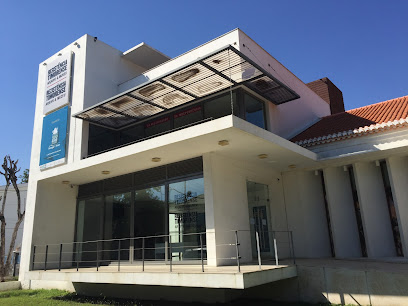
Tais Market
Discover the vibrant Tais Market in Dili, where local culture, crafts, and cuisine come alive in a bustling traditional setting.
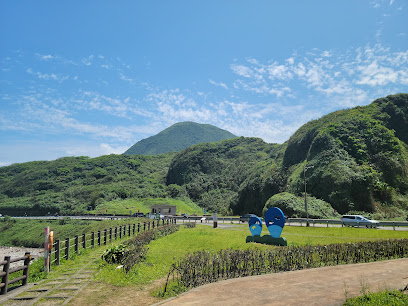
Barry's Place
Discover the perfect blend of luxury and nature at Barry's Place, your go-to resort hotel in Beloi, East Timor, where adventure meets relaxation.

Largo de Lecidere
Discover the beauty and culture of Dili at Largo de Lecidere, a serene park perfect for relaxation, exploration, and cultural immersion in East Timor.
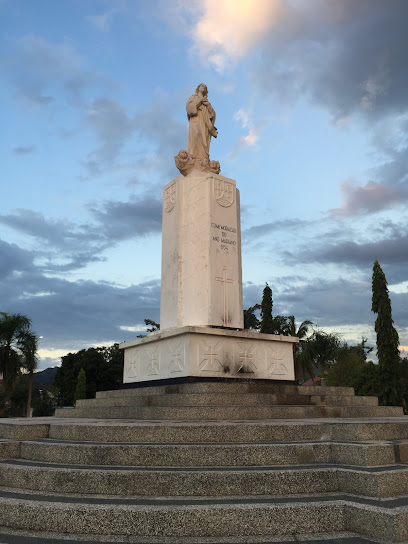
Immaculate Conception Cathedral
Discover the rich heritage at Immaculate Conception Cathedral, the largest church in Timor-Leste, a must-visit for every traveler in Dili.
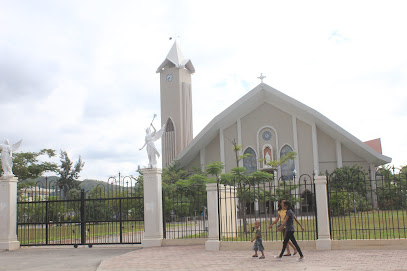
Farol
Experience the serene beauty and vibrant atmosphere of Farol Beach in Dili, Timor-Leste - a perfect getaway for relaxation and adventure.
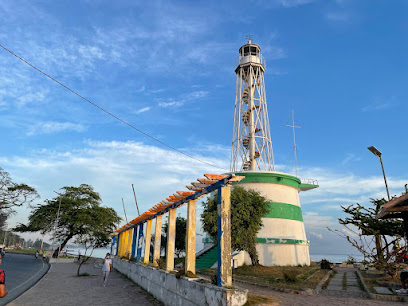
Dolok Oan (Cristo Rei Back Beach)
Explore Dolok Oan, the serene Cristo Rei Back Beach in Dili, where stunning landscapes and tranquil waters invite you to unwind and connect with nature.
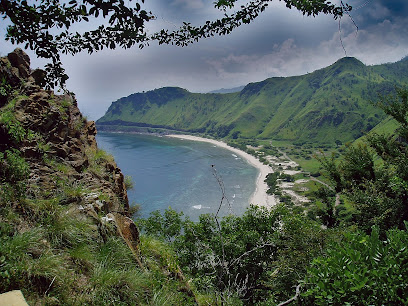
Church of Saint Anthony of Motael
Explore the serene beauty and cultural significance of the Church of Saint Anthony of Motael, a historical gem in Dili, Timor-Leste.
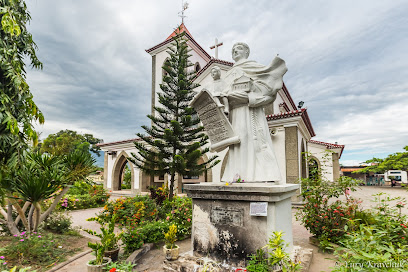
Statue of Youth
Experience the spirit of resilience and aspiration at the stunning Statue of Youth in Dili, Timor-Leste, a tribute to the nation's vibrant youth.
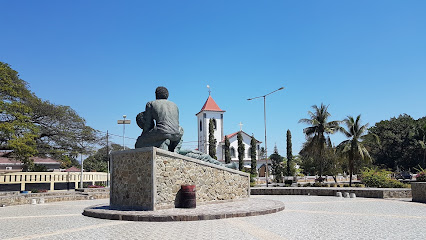
Marobo Hot Spring
Discover the therapeutic beauty of Marobo Hot Spring, a serene escape in Bobonaro, Timor-Leste, surrounded by lush nature and rich culture.
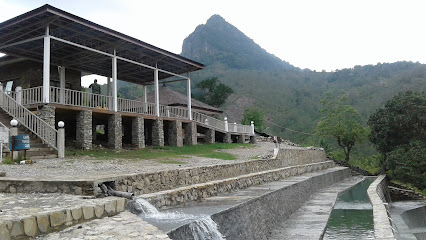
Burger King
Enjoy delicious fast food at Burger King Dili, where international flavors meet local hospitality in a vibrant atmosphere.
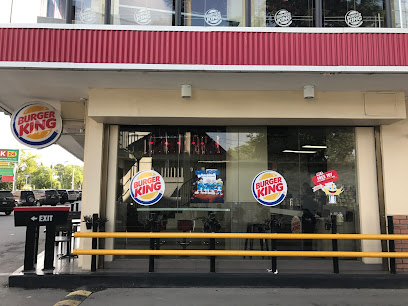
Nicolau Lobato Presidential Palace
Explore the Nicolau Lobato Presidential Palace, a symbol of Timor-Leste's rich history and democratic journey in the heart of Dili.
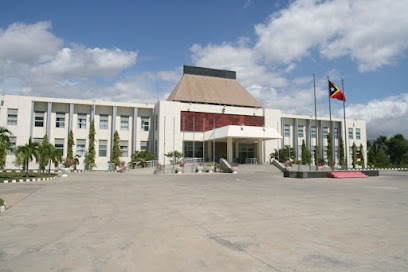
Fruit & Vegetable Market
Explore the vibrant Fruit & Vegetable Market in Dili, where fresh produce meets Timorese culture in a lively and colorful atmosphere.
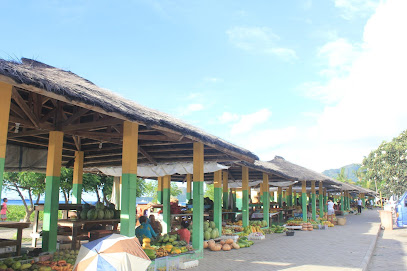
Nino Konis Santana National Park
Discover the breathtaking landscapes and rich biodiversity of Nino Konis Santana National Park, an eco-tourism paradise in East Timor.
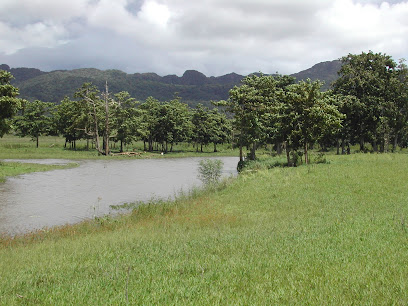
Unmissable attractions to see
Fulan Fehan
Explore Fulan Fehan: A captivating blend of stunning landscapes, rich culture, and unforgettable adventures in East Nusa Tenggara, Indonesia.
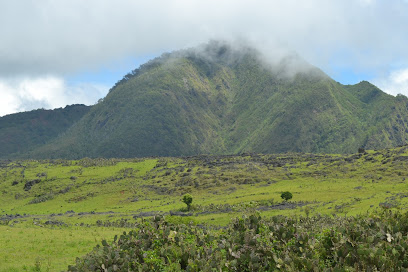
Immaculate Conception Cathedral
Explore the Immaculate Conception Cathedral in Dili, a stunning architectural gem and a vital part of Timor-Leste's rich cultural heritage.
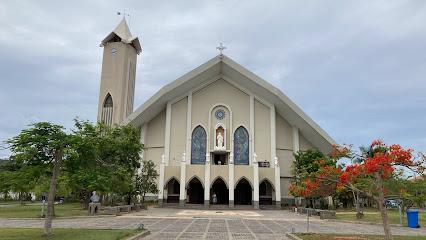
Tugu Selamat Datang Atambua
Explore Tugu Selamat Datang Atambua, where stunning landscapes and rich cultural heritage greet every visitor in East Nusa Tenggara.
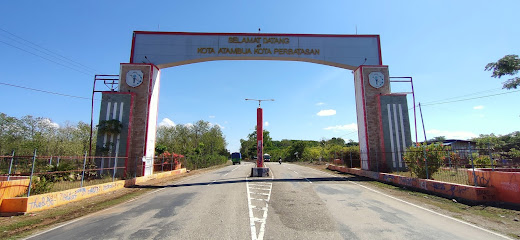
Nino Konis Santana National Park
Explore the breathtaking landscapes and rich biodiversity of Nino Konis Santana National Park in Timor-Leste, a true ecological paradise for nature lovers.
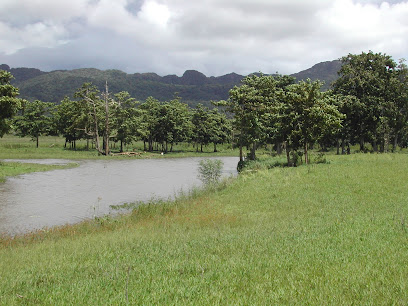
Essential places to dine
Osteria Italiana
Discover authentic Italian flavors at Osteria Italiana in Dili, where every meal is a journey through Italy's rich culinary heritage.
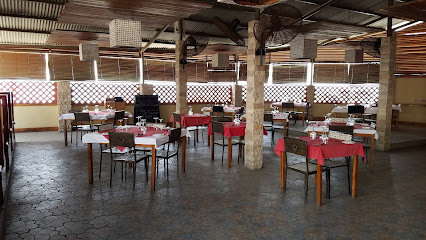
Pro-Ema Restaurant School
Experience exquisite dining at Pro-Ema Restaurant School in Díli, where culinary students create authentic Timorese dishes in an engaging atmosphere.
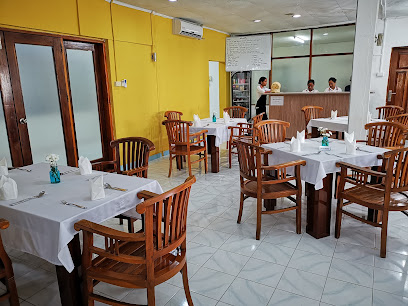
Agora Food Studio
Experience authentic Timorese cuisine at Agora Food Studio in Dili - a culinary haven blending tradition with innovation.
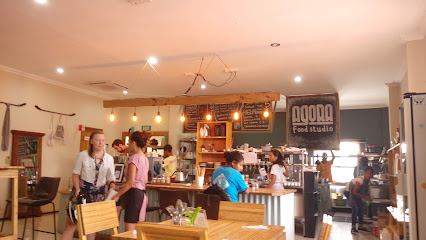
Projeto Montanha
Experience authentic Timorese cuisine with breathtaking views at Projeto Montanha in Aileu.
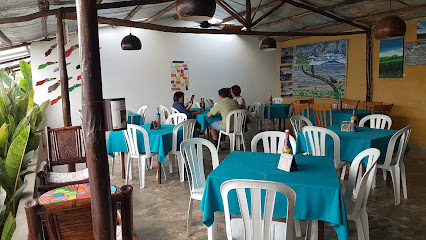
Great Wall Restaurant
Experience authentic Chinese flavors at Great Wall Restaurant in Dili – a must-visit dining destination for food lovers.
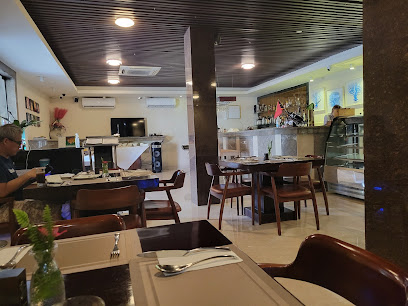
New 88 Restaurant
Discover delectable dishes at New 88 Restaurant in Dili – where local flavors meet international cuisine in a vibrant setting.
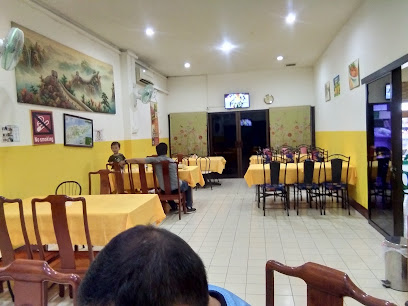
Restaurante Tavirense
Discover the essence of Portuguese cuisine at Restaurante Tavirense in Dili - where authentic flavors meet inviting atmosphere.
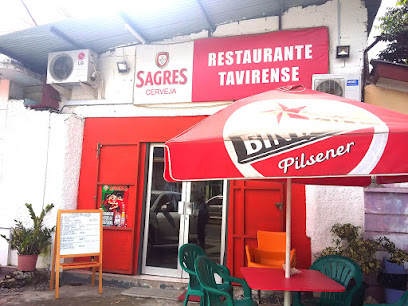
Early Sun Restaurant
Discover authentic Asian flavors at Early Sun Restaurant in Díli - where every meal is a celebration of taste.
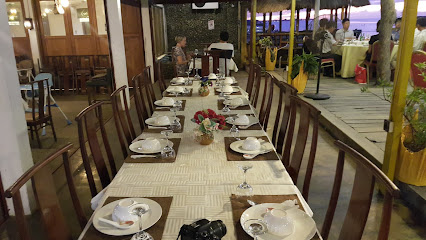
Queen Tundriee Restaurant
Discover authentic Timorese cuisine at Queen Tundriee Restaurant in Díli – where flavor meets culture in every dish.
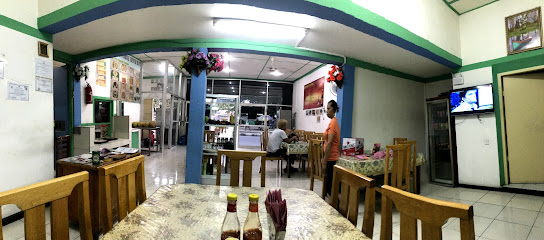
ETDA Restaurant & Training centre
Experience authentic Timorese cuisine at ETDA Restaurant & Training Centre - where culinary excellence meets cultural education.
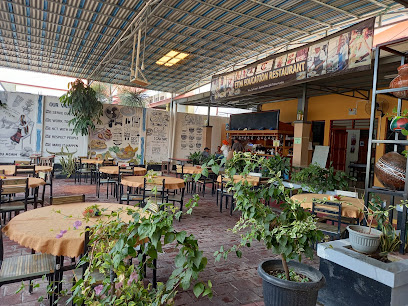
Everest Coffee House
Discover the cozy charm of Everest Coffee House in Dili – your perfect spot for delicious brews and local snacks.
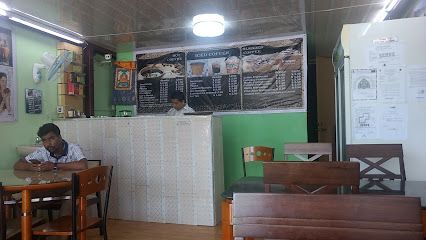
Maubara Fort Restaurant
Discover exquisite local cuisine at Maubara Fort Restaurant while enjoying stunning coastal views and rich historical surroundings.
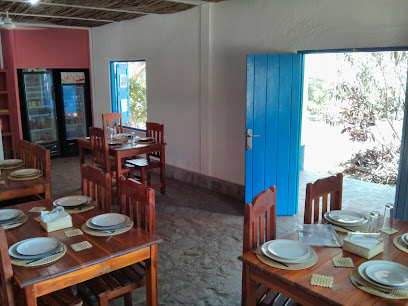
Temasek Restaurant
Discover the authentic taste of Timor-Leste at Temasek Restaurant in Dili - where tradition meets flavor.
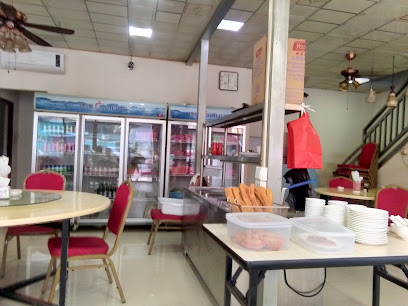
Zery Restaurant
Experience authentic Timorese cuisine at Zery Restaurant in Aileu – where every meal tells a story.
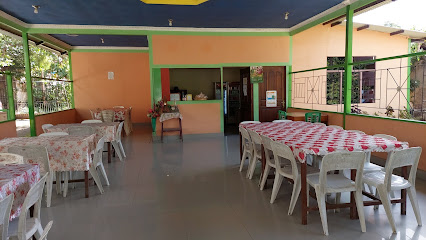
Masakan Jawa
Experience authentic Javanese cuisine at Masakan Jawa in Dili – a culinary journey through Indonesia's rich flavors.
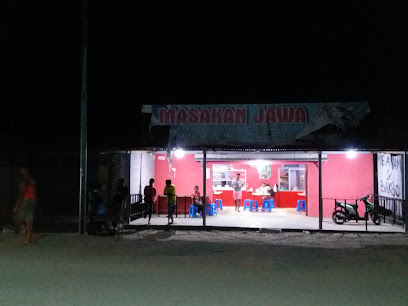
Markets, malls and hidden boutiques
Oil Paintings For Sale
Explore exquisite oil paintings showcasing Timor-Leste's beauty at this charming gift shop and art gallery in the heart of Díli.
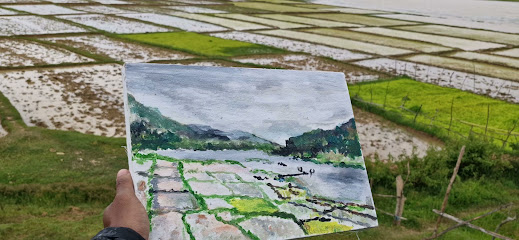
Mercado Ermera
Explore Mercado Ermera, a vibrant market in Ermera, Timor-Leste, filled with local crafts, fresh produce, and delicious street food.
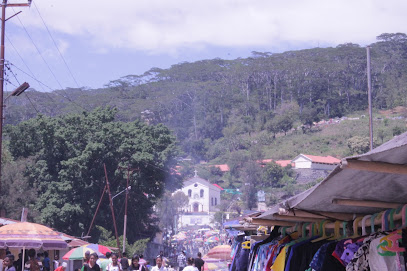
Amagai Store
Explore the vibrant styles of Timorese fashion at Amagai Store in Gleno, where local craftsmanship meets unique clothing designs.
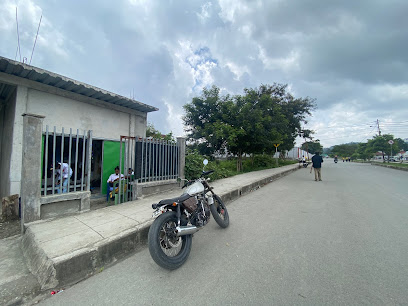
Loja Behale Enterprices Unipessoal Lda
Explore Loja Behale Enterprices, a vibrant shopping mall in Ermera, blending local culture with modern retail experiences and unique Timorese handicrafts.
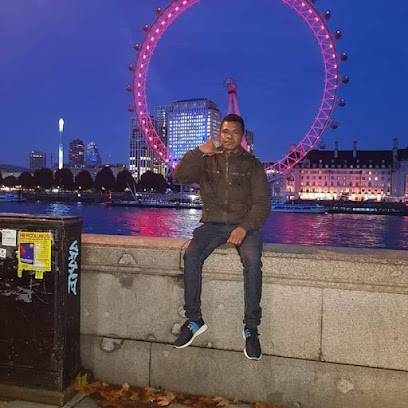
Ida nee Shop
Discover unique gifts and local handicrafts at Ida nee Shop in Dili, the perfect souvenir stop for every traveler in East Timor.
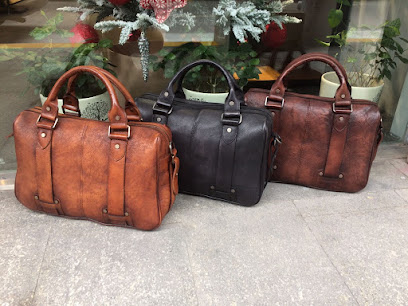
Life shop
Explore Life Shop in Liquica for unique clothing that blends Timorese culture with modern fashion trends, perfect for every occasion.

Loja Aimet Rema
Discover Loja Aimet Rema, a vibrant shopping mall in Gleno, offering unique local goods and an immersive cultural experience for every traveler.

Loja Estrela
Explore Loja Estrela in Gleno for unique souvenirs and immerse yourself in Timor-Leste's rich cultural heritage through local crafts.

Centro Etnique
Discover authentic Timorese treasures at Centro Etnique, the premier souvenir store in Dili, offering handcrafted items that embody local culture.
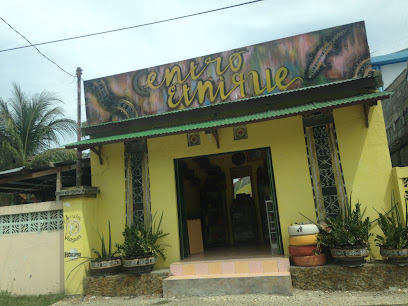
Libra Shop
Explore the Libra Shop in Gleno for a vibrant shopping experience filled with local crafts, authentic cuisine, and a taste of Timorese culture.
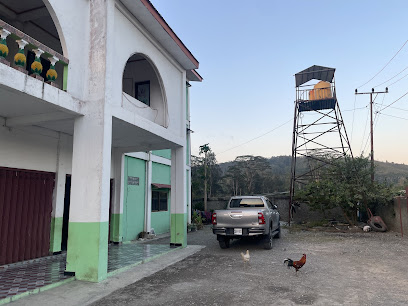
HAU TIMOR
Discover authentic Timorese crafts at HAU TIMOR, a souvenir store in Dili where local artistry meets cultural heritage.
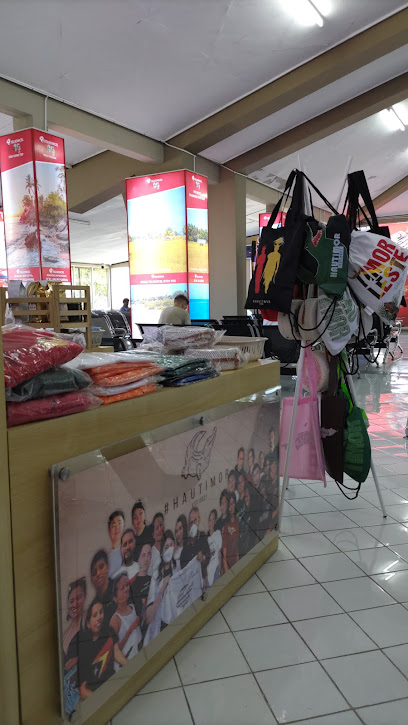
LOJA - Kafe Moruk - JEDOCT UNIP. LDA
Experience the authentic flavors of Timor-Leste at Kafe Moruk in Gleno, a unique government ration shop offering traditional dishes.

EDM 1
Explore local artisans and vibrant products at EDM 1 in Ermera, a cultural gem perfect for authentic souvenirs and gifts.
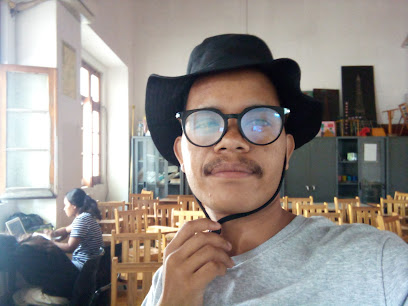
Lauheli
Discover local delights at Lauheli, the quintessential convenience store in Ermera, Timor-Leste, offering snacks, beverages, and essentials for every traveler.

Dauhati
Discover authentic Timorese flavors and local products at Dauhati Grocery Store in Ermera, a must-visit for every traveler.
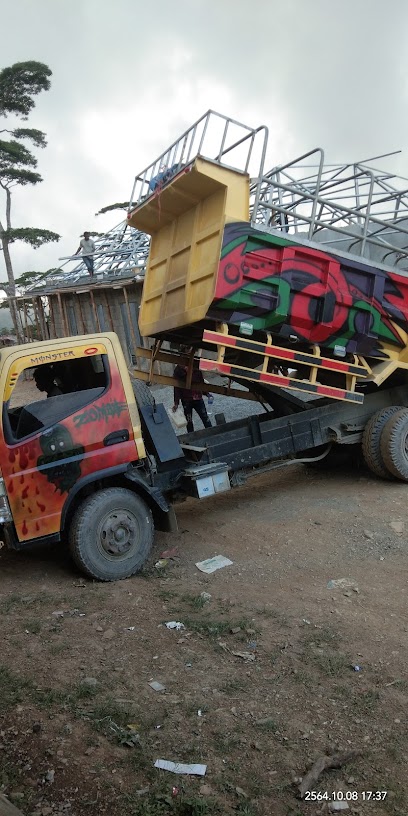
Essential bars & hidden hideouts
Spooners Bar and Grill
Experience the vibrant culinary scene at Spooners Bar and Grill in Díli, where local flavors meet a lively atmosphere for unforgettable dining.
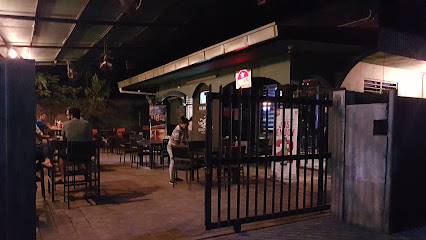
Tower Cafe & Bar
Discover the vibrant ambiance and local flavors at Tower Cafe & Bar, a must-visit spot for tourists in the heart of Dili.
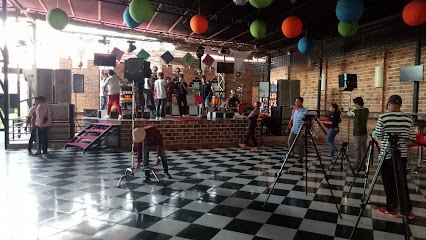
Olé Bar & Tapas
Discover the lively Olé Bar & Tapas in Díli, where delightful tapas and refreshing drinks create a vibrant social experience.
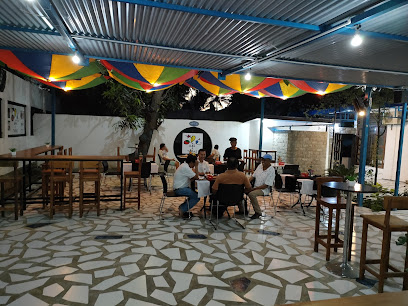
Nova Jar
Experience the vibrant nightlife at Nova Jar, Dili's popular bar offering local brews and a lively atmosphere perfect for socializing.
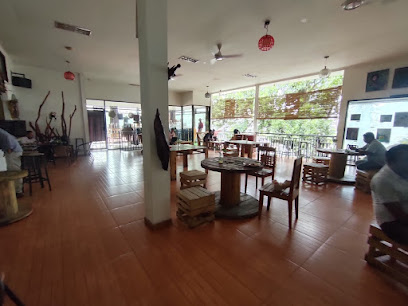
Reggae Bar
Discover the rhythm of Dili at Reggae Bar, where lively music meets tropical drinks in a vibrant and welcoming atmosphere.

Mr. Frango
Experience the vibrant nightlife of Dili at Mr. Frango, a bar offering delicious drinks and a lively atmosphere perfect for travelers.
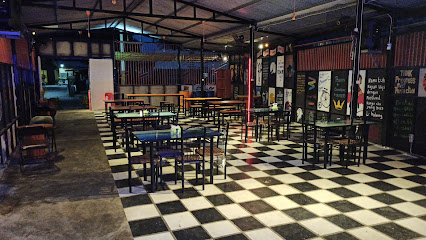
ARMY MADRUGADA
Discover the joy of singing at Army Madrugada, Dili's top karaoke bar, where great music meets a vibrant atmosphere.
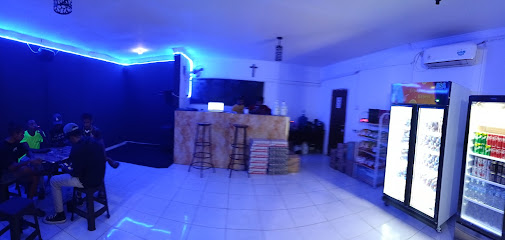
Lopez nirvana
Experience tranquility at Lopez Nirvana, a charming bar in Díli, where stunning views and a relaxing atmosphere await.

Liquor Saksaur
Experience local hospitality at Liquor Saksaur, a vibrant bar in Ainaro, perfect for unwinding after exploring Timor-Leste's stunning landscapes.
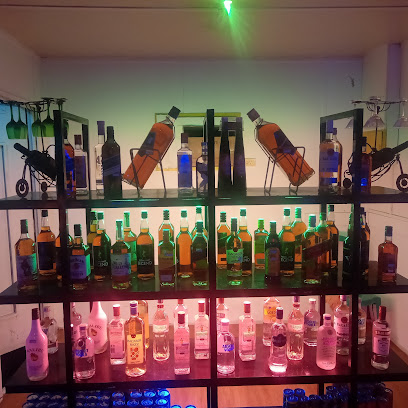
Maria dili
Discover the vibrant nightlife of Dili at Maria Dili, where cocktails and culture blend seamlessly in a lively bar atmosphere.

Sonio Bistro
Discover the charm of Sonio Bistro, a serene bar in Timor-Leste offering local drinks and a welcoming atmosphere for travelers and locals alike.

Restaurante Ernansavio Goody Valze
Experience the authentic flavors of Timor-Leste at Restaurante Ernansavio Goody Valze, a culinary gem in Ermera offering fresh local dishes.

Amaral Bar
Discover the lively charm of Amaral Bar in Dili, where refreshing drinks and vibrant atmosphere come together for an unforgettable nightlife experience.

W2 Mini Mart, Bar, Cafe, Studio Music and Karaoke
Experience the vibrant atmosphere of W2 Mini Mart, Bar, Cafe, Studio Music and Karaoke in Dili, where music, drinks, and culture collide.

Comoro
Experience the lively atmosphere and local flavors at Comoro, a must-visit bar in Dili, Timor-Leste, for an unforgettable night out.

Local Phrases
-
- HelloBainhira
[By-ni-ra] - GoodbyeAdeus
[Ah-deh-oos] - YesSim
[Seem] - NoLa
[La] - Please/You're welcomeFavor
[Fa-vor] - Thank youObrigadu
[Oh-bree-gah-doo] - Excuse me/SorryDeskulpa
[Deskool-pa] - How are you?Diak ka lae?
[Jee-ak ka lie?] - Fine. And you?Diak. O ita?
[Jee-ak. Oh ee-ta?] - Do you speak English?Ita koalia Ingles?
[Ee-ta kwa-lee-ya Ing-gles?] - I don't understandHau la hatene
[How la ha-te-neh]
- HelloBainhira
-
- I'd like to see the menu, pleaseHau hakarak hare menu, favor
[How ha-ka-rak ha-re meh-noo, fa-vor] - I don't eat meatHau la hakaan karne
[How la ha-kaan kar-neh] - Cheers!Saude!
[Sow-deh] - I would like to pay, pleaseHau hakarak selu, favor
[How ha-ka-rak se-loo, fa-vor]
- I'd like to see the menu, pleaseHau hakarak hare menu, favor
-
- Help!Ajuda!
[Ah-joo-dah] - Go away!Ba oin!
[Bah oh-een] - Call the Police!Talia Polisia!
[Tah-lee-ah Po-lee-syah] - Call a doctor!Talia doktor!
[Tah-lee-ah dok-tor] - I'm lostHau mate
[How mah-teh] - I'm illHau moras
[How mo-ras]
- Help!Ajuda!
-
- I'd like to buy...Hau hakarak sosa...
[How ha-ka-rak so-sa] - I'm just lookingHau deit hetan
[How dayt heh-tan] - How much is it?Kuantu?
[Kwan-too?] - That's too expensiveNe'e diak barak
[Neh-eh jee-ak ba-rak] - Can you lower the price?Ita bele foka tan prenu?
[Ee-ta beh-le fo-ka tan pre-noo?]
- I'd like to buy...Hau hakarak sosa...
-
- What time is it?Kuantas oras agora?
[Kwan-tas o-ras a-go-ra] - It's one o'clockHanesan oras ida
[Ha-neh-sahn o-ras ee-dah] - Half past (10)Nulu resin (10)
[Noo-loo re-sin (10)] - MorningKalan
[Kah-lan] - AfternoonTarde
[Tar-deh] - EveningKalan kleur
[Kah-lan kleh-or] - YesterdayHoriseik
[Ho-ri-seek] - TodayOhin loron
[Oh-heen loh-ron] - TomorrowAmi
[Ah-mee] - 1Ida
[Ee-dah] - 2Rua
[Roo-ah] - 3Tolu
[Toh-loo] - 4Haat
[Ha-aht] - 5Lima
[Lee-ma] - 6Neen
[Neh-ehn] - 7Hitu
[Hee-too] - 8Ualu
[Wah-loo] - 9Sia
[See-ah] - 10Sanulu
[Sah-noo-loo]
- What time is it?Kuantas oras agora?
-
- Where's a/the...?Iha nebee...?
[Ee-ha neh-beh] - What's the address?Address saida?
[Ad-dres sa-ee-da] - Can you show me (on the map)?Ita bele hatudu hau (iha mapu)?
[Ee-ta beh-le ha-too-doo how (ee-ha mah-poo)] - When's the next (bus)?Bainhira loron (bus) tuir mai?
[By-ni-ra loh-ron (boos) too-eer mah-ee] - A ticket (to ....)Bilhete (ba ....)
[Bil-ye-te (bah)]
- Where's a/the...?Iha nebee...?
History of Ermera
-
Before Portuguese colonization, Ermera was part of the various indigenous kingdoms that dotted the island of Timor. The region was inhabited by the Mambai people, who were known for their agrarian lifestyle and their intricate system of local governance. Oral traditions and archaeological findings suggest that the Mambai had a rich cultural heritage that included unique rituals, languages, and social structures.
-
The Portuguese arrived in Timor in the early 16th century and began to establish their control over the island. Ermera became an important administrative region for the Portuguese colonial government. The introduction of coffee cultivation in the 19th century transformed the local economy, making Ermera one of the primary coffee-growing areas in Timor-Leste. Portuguese influence is still visible in the architecture and layout of the town, as well as in the Catholic traditions that took root during this period.
-
During World War II, Timor-Leste was occupied by Japanese forces. Ermera, like many other regions, experienced significant hardship during this period. The local population was subjected to forced labor, and many were displaced from their homes. Despite the challenges, the people of Ermera played a crucial role in the resistance against the Japanese occupation, contributing to the larger struggle for Timor-Leste's independence.
-
Following the brief declaration of independence in 1975, Timor-Leste was invaded by Indonesian forces. Ermera experienced intense conflict and violence during the Indonesian occupation, which lasted until 1999. The region was a hotspot for guerrilla warfare, with local resistance fighters conducting operations against the occupying forces. The Indonesian occupation had a profound impact on the community, leading to significant loss of life and displacement.
-
After a UN-sponsored referendum in 1999, Timor-Leste voted for independence from Indonesia. Ermera, like much of the country, faced the immense task of rebuilding after decades of conflict. International aid and local initiatives have played a crucial role in the reconstruction efforts. Today, Ermera is known for its vibrant coffee industry, which has seen a revival and plays a significant role in the local economy. The region is also celebrated for its cultural heritage, with traditional dances, music, and festivals continuing to thrive.
-
Ermera is rich in cultural traditions that reflect its diverse history. The Mambai people, who are the predominant ethnic group, maintain a variety of cultural practices, including traditional dances, weaving, and ceremonial rituals. The annual coffee festival is a highlight, celebrating the region's primary agricultural product and drawing visitors from across Timor-Leste and beyond. The local language, Mambai, is widely spoken and is an integral part of the community's identity.
Ermera Essentials
-
Ermera is located in the central highlands of Timor-Leste. The nearest international airport is Presidente Nicolau Lobato International Airport in Dili, the capital city, approximately 55 kilometers away. From Dili, you can take a minibus (known locally as mikrolets) or hire a private taxi to Ermera. The journey typically takes around 2 to 3 hours by road, depending on the traffic and road conditions.
-
Within Ermera, transportation options include mikrolets, local buses, and taxis. Mikrolets are a popular and economical way to get around, but they can be crowded. Taxis are readily available and are a more comfortable option for longer distances. Renting a motorbike is also a great way to explore the area at your own pace. Be aware that road conditions can vary, so drive carefully.
-
The official currency of Timor-Leste is the US Dollar (USD). Credit cards are accepted in some hotels and larger restaurants, but it is advisable to carry cash, especially in smaller establishments and rural areas like Ermera. ATMs are available in Dili, but there are limited options in Ermera, so it is wise to withdraw sufficient cash before traveling.
-
Ermera is generally a safe destination for tourists. However, it is always advisable to take standard precautions. Avoid walking alone at night in unfamiliar areas and keep an eye on your belongings in crowded places. There are no specific high-crime areas targeting tourists in Ermera, but staying vigilant and aware of your surroundings is always best.
-
In case of emergency, dial 112 for immediate assistance. The local police station and medical facilities are available in Ermera. It is recommended to have travel insurance that covers medical emergencies. For minor health issues, there are pharmacies where you can purchase over-the-counter medications.
-
Fashion: Do dress modestly, especially when visiting religious sites. Avoid wearing revealing clothing. Religion: Do respect local customs and traditions. Always cover your head when entering churches and mosques. Public Transport: Do be respectful and give up your seat to elderly passengers. Don’t eat or drink on public transport. Greetings: Do greet people with a handshake or a slight nod. Smiling and saying 'Bondia' (Good morning) or 'Botarde' (Good afternoon) is appreciated. Eating & Drinking: Do try local delicacies and accept food offerings graciously. Don’t refuse hospitality, as it is considered impolite.
-
To experience Ermera like a local, visit the local markets where you can buy fresh produce and traditional Timorese goods. Engage with locals, as they are often friendly and willing to share stories about their culture and history. Don't miss visiting the coffee plantations, as Ermera is known for its high-quality coffee. For a unique experience, take a hiking trip to the surrounding mountains, which offer breathtaking views and a chance to connect with nature.
Trending Landmark in Ermera
-
Cristo Rei of Dili
-
Timorese Resistance Archive & Museum
-
Tais Market
-
Barry's Place
-
Largo de Lecidere
-
Immaculate Conception Cathedral
-
Farol
-
Dolok Oan (Cristo Rei Back Beach)
-
Church of Saint Anthony of Motael
-
Statue of Youth
-
Marobo Hot Spring
-
Burger King
-
Nicolau Lobato Presidential Palace
-
Fruit & Vegetable Market
-
Nino Konis Santana National Park
Nearby Cities to Ermera
-
Things To Do in Gleno
-
Things To Do in Aileu
-
Things To Do in Dili
-
Things To Do in Bobonaro
-
Things To Do in Same
-
Things To Do in Suai
-
Things To Do in Baucau
-
Things To Do in Lospalos
-
Things To Do in Darwin
-
Things To Do in Makassar
-
Things To Do in Bali
-
Things To Do in Manado
-
Things To Do in Balikpapan
-
Things To Do in Surabaya
-
Things To Do in Yogyakarta






